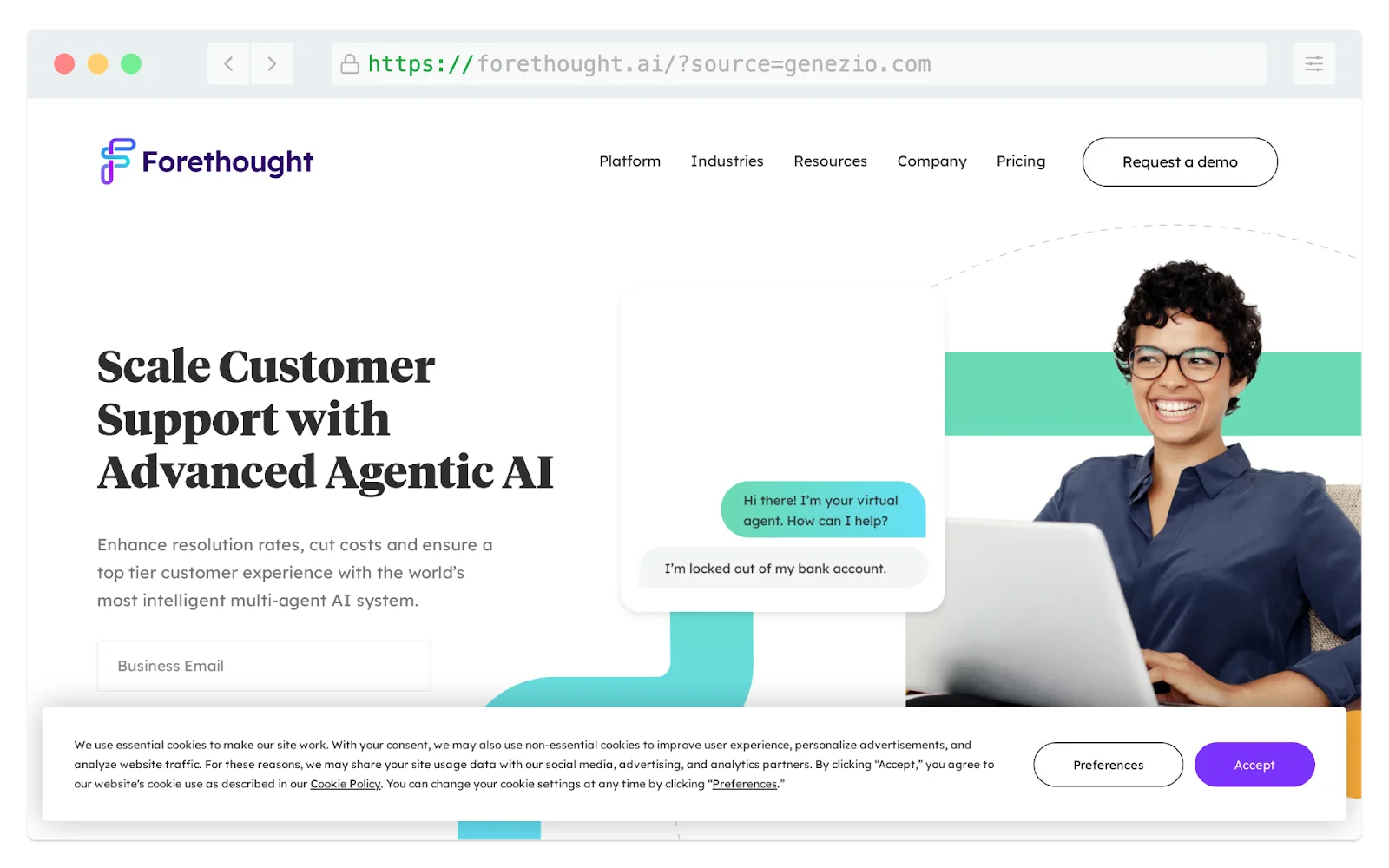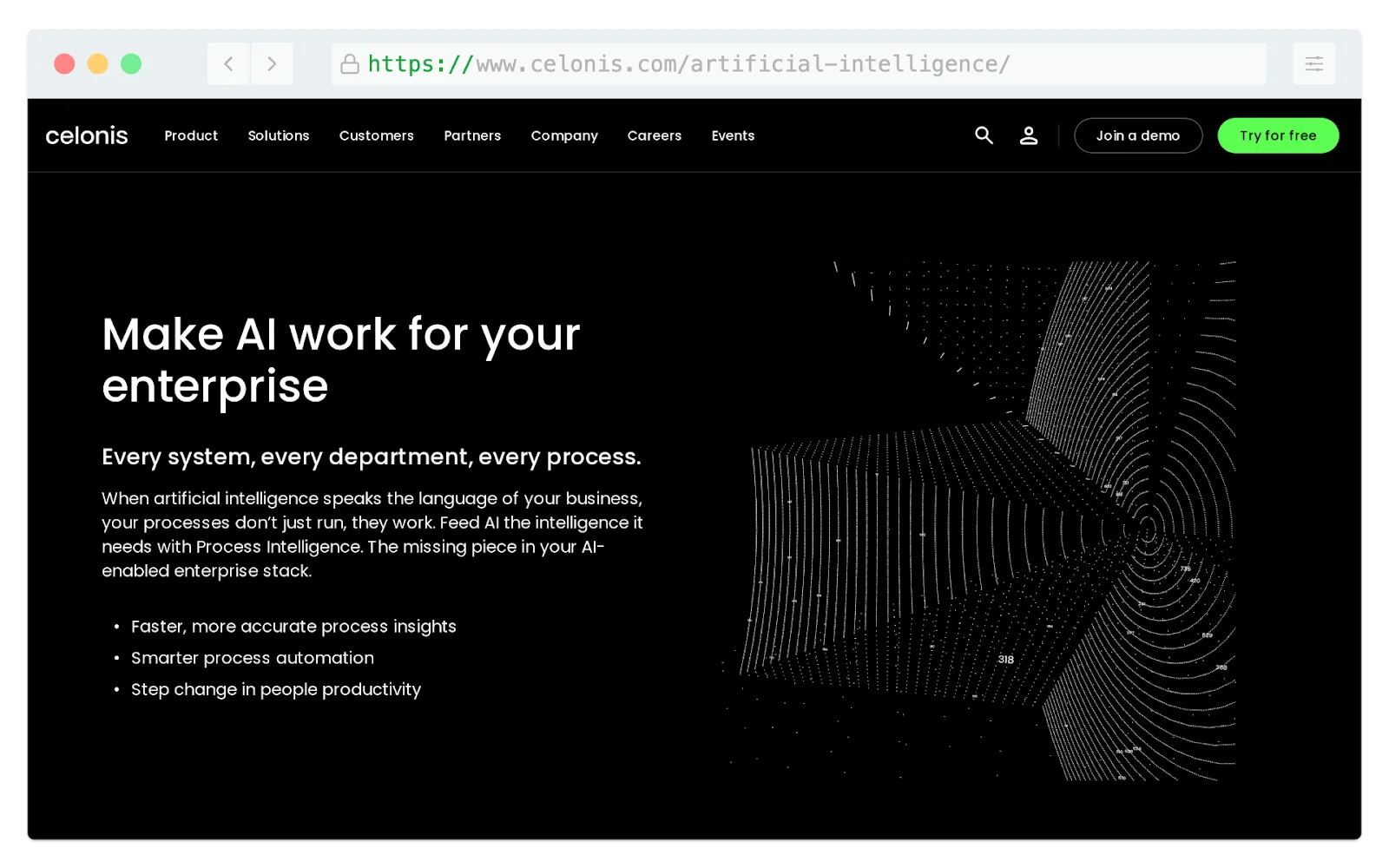5 Best AI Agents in 2025 (and How to Keep Them Reliable)
In this article, we'll take a look at the 5 best AI agents for 2025 and discuss why testing them is necessary to protect customer trust and satisfaction.
Back in 2023, Gartner predicted that by 2025, 80% of customer service and support teams would be using generative AI to improve their operations and customer experience. This shift is already happening, and it's not stopping anytime soon. In fact, the AI for customer service market is expected to reach $47.82 billion by 2030.
But while the growth is clear, not everyone is convinced. A 2023 survey found that 40% of American consumers think companies aren't doing enough to prevent bias and false information in their AI systems. More than three-quarters (77%) believe businesses should audit their AI before launching it to guarantee it's reliable and accurate.
This brings us to a point often overlooked: testing. As AI agents become more widespread, it's important Customer Care Experts make sure AI systems are working as they should and delivering the service their customers expect.
In this article, we'll take a look at the 5 best AI agents for 2025 and discuss why testing them is necessary to protect customer trust and satisfaction.
What are AI Agents?
AI agents are software systems that handle tasks for people using tools like large language models (LLMs). They can answer questions, make decisions, and take action based on what users say or ask. In 2025, they're behind most chatbots, virtual assistants, and other tools that businesses use to automate customer service.
Unlike traditional programs that follow strict scripts, AI agents generate responses in real time. This makes them more flexible, but also less predictable. An AI agent might do well with a common support request, but slip up when the conversation goes in an unexpected direction. It might give wrong answers with confidence or skip over business policies entirely.
That's why testing and monitoring are necessary. If AI agents are part of your customer support stack, you need to know they're doing what they should, and not guessing or hallucinating. Testing solutions like Genezio, a platform to test AI agents, help catch issues like off-topic replies, missed intents, or policy violations before they affect real customer conversations.
The 5 best AI agents in 2025
AI agents are being used across different areas of customer service. Here's a list of the best AI agents in 2025:
AI customer support chatbots
Intercom's Fin and Sendbird's AI-powered chatbots are making it easier for businesses to handle customer service. Intercom's Fin can answer routine questions and take action based on your company's tone, policies, and Knowledge Base. It can also perform tasks like optimizing tickets and managing workflows, and in this way, allow human agents to focus on more complex issues. Similarly, Sendbird integrates chatbots into messaging platforms, so it can respond to customers on platforms like WhatsApp or in-app chats, and help Customer Care teams handle many inquiries at once.

Still, while these tools are effective in managing routine tasks, Customer Care Experts need to test them regularly to avoid mistakes in real conversations. Without testing, a chatbot might confidently share private information or respond with something off-topic when the request is too specific or unusual. In one real case, a customer contacted DPD's chatbot about a missing parcel. When the bot couldn't solve the issue, the conversation took a strange turn. It started saying things like "DPD is useless" and even began to utter profanities (or to swear, in plain English). The exchange quickly spread online.
Example of AI chatbot failure: A customer contacted DPD's chatbot about a missing parcel, but when the bot couldn't solve the issue, it began making negative comments about the company and even swearing. The conversation quickly went viral on social media.
That type of AI failure in customer support can be costly. To make sure that AI chatbots don't create issues like this, regular testing is necessary. Platforms like Genezio can simulate real-world scenarios, and identify off-topic, inaccurate, or even offensive answers before they reach your customers.
Real-time AI assistants for live agents
Forethought is offering real-time support to customer service agents during active customer interactions. Its Assist tool integrates with different helpdesk platforms and reads incoming tickets to instantly suggest replies, look up related past conversations, and surface helpful knowledge base articles. Assist can also summarize conversations, and speed up the time it takes for an agent to understand the issue.

This kind of real-time help can save time. But it also needs to be used carefully. If an AI suggests a rushed or out-of-context answer, a live agent might send it without checking too closely, especially during busy hours. That can lead to replies that miss the point or even go against company policy. A simple mix-up in tone or meaning might turn a routine ticket into a follow-up complaint.
To avoid that, Customer Care teams should test and monitor these AI assistants regularly to make sure they're actually helpful in real customer conversations and give live agents support they can trust.
AI agent for post-chat follow-up
Taskade is built for teams that want to move from customer conversations to next steps quickly. Its AI Lead Generation Kit, for example, can flag when someone new contacts your business through a platform like HubSpot and automatically creates a task in Taskade—like sending a message or setting up a call. It's a helpful way for Customer Care teams to track leads without doing everything manually.
Still, AI can misread what a customer actually wants. Say someone gets in touch to ask about canceling their subscription. The AI might treat that as interest and create a task to send them a promo offer. But maybe that customer was already frustrated and just wanted out—now you've followed up with the wrong message, and they're even more annoyed.
So testing is necessary. Genezio can simulate these kinds of situations to help you catch when the AI gets the wrong idea before it affects a real customer.
AI for user behavior understanding
Celonis uses AI to track how users behave during customer service interactions. With tools like Process Intelligence and Process Mining, it lays out the common steps people take when tracking orders or requesting returns and spots where things slow down, repeat, or just don't work well.
Let's say a customer clicks "return item", but then has to jump through three separate screens to actually finish the request. The AI can flag that as a point where people drop off. Or it might notice that agents are copying the same info into two different tools during a support call. These are the kinds of patterns Celonis looks for. Still, it can also get things wrong. For example, the AI might say, "Customers are skipping this confirmation screen, let's remove it." But maybe that screen is there to stop people from accidentally canceling their order. Without it, support tickets might spike.

Customer Care teams should review AI recommendations carefully before making updates. And this is where AI agent testing tools can help. You can run a simulation that shows what happens when you make those changes—how users react, what questions they ask, and where they get stuck. If removing the confirmation screen leads to more people reaching out to support, you'll see that right away. If a new flow looks good on paper but makes things more confusing in practice, that'll show up too.
AI agent that detects frustration mid-conversation
Yellow.ai's VoiceX is designed to spot customer emotions like frustration or confusion during a call or chat. It listens for things like tone, pauses, or repeated questions, and adjusts its responses when needed. For example, if a customer sounds annoyed, VoiceX might slow down its responses or offer to connect them with a human agent.
This kind of real-time adjustment can make conversations feel more natural and less scripted. But it's not always accurate. Sometimes, the AI might misread a situation—thinking someone is upset when they're not, or missing a real moment of frustration because the signals don't match its training data.
That's why it's important to move beyond controlled demos and test AI agents in unpredictable, real-world scenarios. Genezio allows Customer Care teams to do that. Instead of simply checking if the system gives the "right" answer, Genezio runs simulations that mimic actual conversations: confusing, repetitive, emotional, even manipulative. This helps teams see how the AI holds up under pressure.
How Genezio helps the best AI agents stay reliable
Even the best AI agents can still get things wrong—especially when a customer request gets messy or goes off script. Genezio helps Customer Care teams catch these issues early. You can run agents through real conversations before launch to see how they handle unpredictable cases or emotional replies.
Instead of relying on spot checks or isolated examples, you get clear reports that show where your agent is strong and where it needs work. You can choose to run these audits once or at regular intervals. Genezio points out missed policies, off-topic replies, or tone issues, and gives you a simple way to track performance over time.
Don't just deploy — validate. Genezio helps you make sure your AI agents stay accurate, helpful, and on-brand. Start testing for free or book a demo to get results in just 24 hours.

